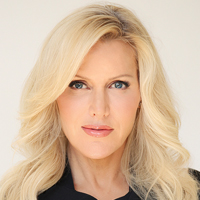
According to the Administration for Community Living, there were 54.1 million Americans age 65 and older in 2019, which was up nearly 37% from ten years earlier. Between now and 2040, that segment of the population is expected to reach nearly 81 million, which would be another 50% increase. Older Americans are one of the fastest-growing demographics in the nation.
It’s no surprise, then, that more and more client conversations are about long-term care. As financial advisors, part of our job is to help our senior clients anticipate and plan for the expenses they’ll incur and the decisions they’ll need to make when they are no longer able to care for themselves.
What About The Children?
But there’s another generation that is profoundly impacted by this need, and it is less visible and more infrequently considered: the children of those senior clients. Many of those children are “the sandwich generation”: They are still raising kids, but also taking care of aging parents. Though the implications of long-term care — and how to fund it — are less frequently associated with this demographic, it is vital for financial advisors to consider their needs and make sure the topic is on the table.
For one thing, this is the demographic that typically faces the highest risk of “caregiver stress” and associated burnout. According to the Family Caregiver Alliance, many caregivers are prone to:
• not getting enough sleep,
• not eating healthy,
• skipping exercise,
• “powering through” instead of resting when they’re ill, and
• postponing or ignoring medical appointments.
They are also at risk for depression and excessive use of alcohol, tobacco and other drugs. And it’s not surprising: When your entire focus is on taking care of someone else, it can be easy to forget to take care of yourself.
The Mayo Clinic, says signs of “caregiver stress” include:
• feeling overwhelmed or constantly worried;
• frequent fatigue;
• sleeping either too much or not enough;
• unexplained weight gain or loss;
• prone to irritation or anger;
• loss of interest in activities once enjoyed;
• frequent feelings of sadness;
• frequent headaches, body aches, or similar complaints; and
• drug or alcohol abuse.
Meeting the Best-Interest Standard
Responsible advisors place a high value on maintaining a thorough knowledge of clients in order to meet the best-interest standard. They need to help “sandwich generation” clients avoid pitfalls that lead to poor health, higher stress, and increased potential for making poor financial judgments.
How can advisors facilitate needed conversations about long-term care for older clients, with special attention on helping children avoid the problems that come with uncertainty about their parents’ wishes and resources?
The most important principle is to keep the conversations centered on the clients: the older generation and their children. Advisors, especially those fortunate enough to be serving both generations, can often position themselves as objective counselors who, though concerned with outcomes, are not directly involved. This approach can ease tensions that often rise when families discuss illness, incapacity and even mortality. By focusing the conversation on the needs of everyone involved, both older parents and their children, advisors can help both parties proceed with a higher degree of trust, empathy and openness.
Client Conversations
One approach is to begin with everyone’s optimal scenario. Advisors can start by asking the older generation about their goals for the coming years, what they hope to accomplish, and where they see themselves in the future. This leads to conversations about relationships with children and grandchildren, and provides an opening for the needs and concerns of the younger people at the table to be considered.
Older clients often insist that they do not wish to be a burden to their children. Their expression of that desire can encourage helpful discussions of what “not being a burden” might look like for all parties. Advisors can ask open-ended questions about the preferences for care providers. Should they be family members or professionals? Where will care be provided? Will a home require modifications to accommodate reduced levels of mobility? Questions like these encourage constructive conversations about the resources needed to meet these preferences.
According to the most recent Genworth Cost of Care Study, the median cost for in-home care was $61,776 annually, up from $54,912 the year before. The median cost for a private room in a nursing home was $108,405 annually. Meanwhile, the hourly rate for a home health aide in 2021 ranged from $19 in West Virginia to $36 in Minnesota.
Advisors who share real-world financial data like this not only demonstrate their expertise, but also can use it to guide a client based on their knowledge of the client’s resources. As a side benefit, it may help younger clients think about their own future needs and encourage them to buy long-term care insurance or use other planning tools that forecast needs decades later.
The goal of all of this, of course, is to help older clients and their children agree on a plan well ahead of when the plan must be enacted. By facilitating this process, the financial advisor has performed a valuable service for two generations and has greatly decreased the likelihood of the younger clients dealing with the types of stressors and health challenges represented by “caregiver stress.”
As in so many other circumstances around financial planning, careful planning now typically means less uncertainty and stress later. But for clients to reap these benefits, the advisor needs to be the one to get the conversation started.
Kimberly Foss, CFP, CPWA, CFT-I candidate is president and founder of Empyrion Wealth Management and author of “Wealthy by Design: A 5-Step Plan for Financial Security.” Kimberly combines a technical expertise with a real passion for her work with her clients, including family stewards, women in transition and thriving retirees. She regularly shares her financial expertise with leading media outlets. In 2021, Kimberly was named to Investopedia 100 Top Financial Advisors and recognized with the ThinkAdvisor LUMINARIES award.







